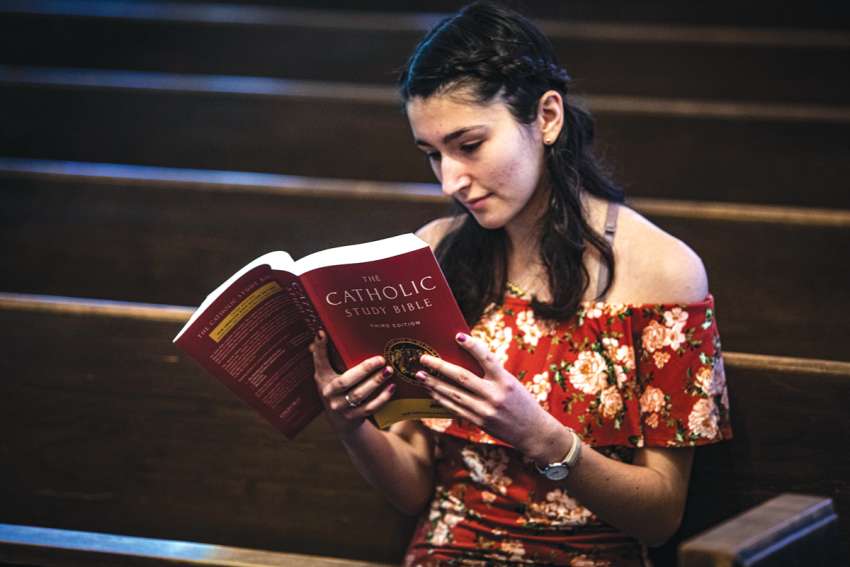“Lord, to whom can we go? You have the words of eternal life. We have come to believe and know that you are the Holy One of God”
-- John 6: 68-70
The above quotation is a response from Simon Peter to Jesus when Jesus asked the disciples: “Do you also wish to go away?” In a story reported in the Gospel of John, some of the disciples found it difficult to accept Jesus’ teaching of Himself being the “Bread of Heaven.”
What are some of your favourite stories you have learned from the Bible? In Christianity, the Bible — Sacred Scripture consisting of both the Old and the New Testaments — is known as the Word of God. The Bible is “inspired by God and is useful for teaching, for reproof, for correction and for training in righteousness, so that everyone who belongs to God may be proficient, equipped for every good work (2 Timothy 3: 16-17).”
The Bible and its teachings are a primary and indispensable source of our Christian faith and we read the Bible at liturgical celebrations. In the Vatican II document “Dogmatic Constitution of Divine Revelation,” we read: “Access to Sacred Scripture ought to be widely available to the Christian faithful” (Dei Verbum, 22). Over the years, the Church has continued to emphasize the importance of having the Bible and reading the Bible as part of our practice of the Christian faith.
On Sept. 30, 2019 — the Memorial of St. Jerome, Bishop and Doctor of the Church — Pope Francis established that “the Third Sunday in Ordinary Time is to be devoted to the celebration, study and dissemination of the Word of God.” Pope Francis urges all Christians to read the Bible. This year, Sunday also falls during the Week of Prayer for Christian Unity. As Christians, the celebration of the Sunday of the Word of God in the context of the Week of Prayer for Christian Unity reminds us of Jesus’ teaching in the Bible that “they may be one, as we are one” (John 17:22-23). We celebrate that we are together as one people of God — in faith, hope and love as revealed in the Bible.
So, what is the spiritual significance of the Bible to us in our world today? The Bible comes in different versions with many different translations from the original texts. The Biblical texts were also written in the context of the culture at the time of the sacred writers. We know from the Bible that some of these cultural situations are different from our own. The various books of the Bible represent different kinds of literature — some are history, some are prophecy and some are poetry and prayer. Therefore, to understand what we read in the Bible can be challenging.
How then can we read and pray with Sacred Scripture? We obtain the spiritual benefits of praying with Sacred Scripture when we can interpret and understand a Biblical passage as applied in our situations and circumstances.
While establishing the Sunday of the Word of God, Pope Francis mentioned that “pastors are primarily responsible for explaining Sacred Scripture and helping everyone to understand it.” However, whether it is the priest who is preparing a homily or it is we who are reading the Bible, there is the tendency of doing personal interpretation which the Bible warns us against: “no prophecy of Scripture is a matter of one’s own interpretation” (2 Peter 1:20).
If we are to read and pray with the Bible as the Word of God, then the Pope encourages us to turn to the Holy Spirit “who makes Sacred Scripture the living word of God, experienced and handed down in the faith of His holy people.” God still speaks to us in the Bible through His Son. When we read the Bible in the context of who God is and who we are, we understand how the Bible and its teachings are still relevant to our lives in our own time. With proper interpretation, the Bible conveys a message of hope, peace and love. According to St. Jerome who translated most of the Bible into Latin, “ignorance of Scriptures is ignorance of Christ.”
As Christians, when we read the Bible, we encounter Christ. On this Sunday of the Word of God, let us ask Jesus to teach us how to live according to His words.
(Fr. Yaw Acheampong is pastor of Our Lady of Peace in Etobicoke.)


